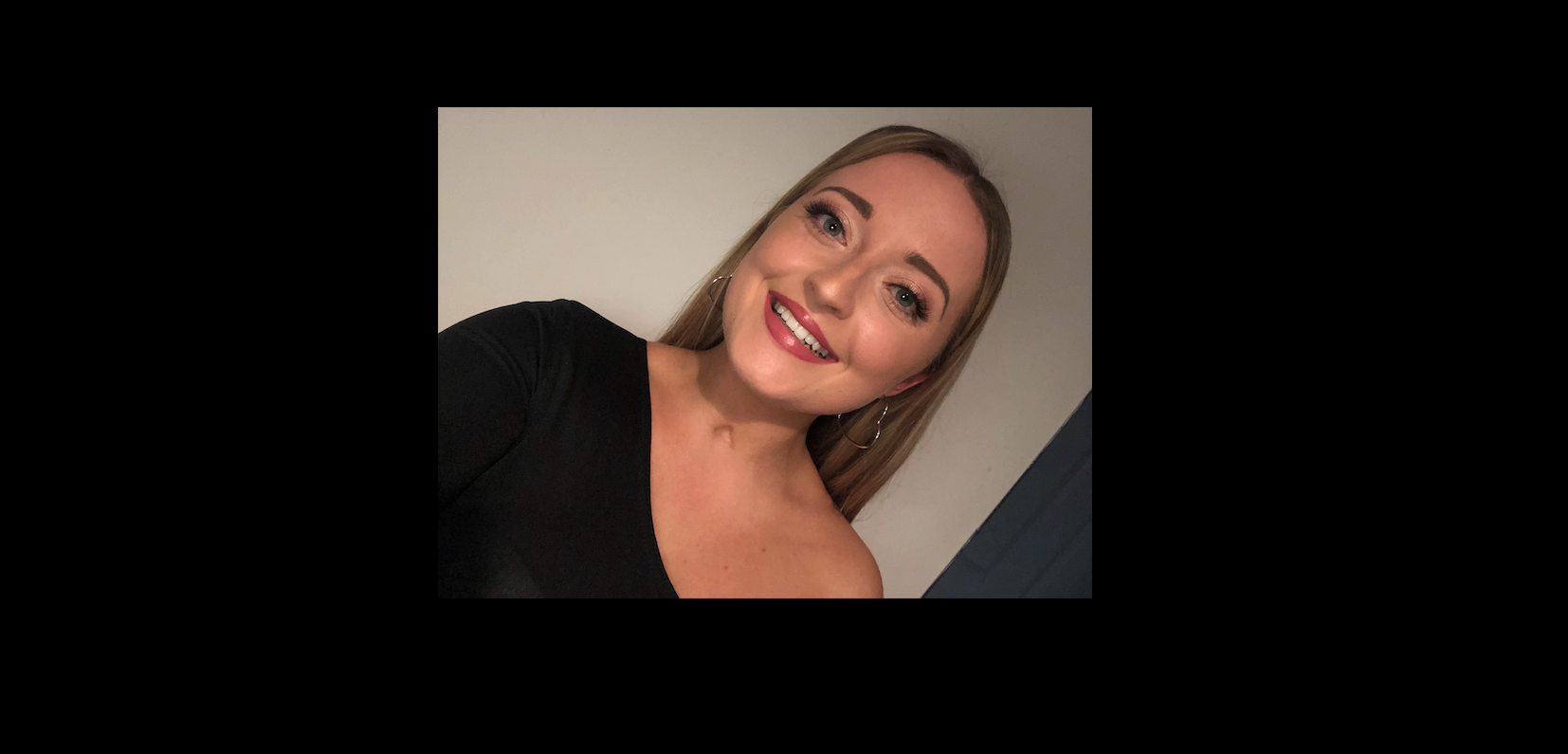ONE IN A MILLION
2016. The year that changed a life forever.
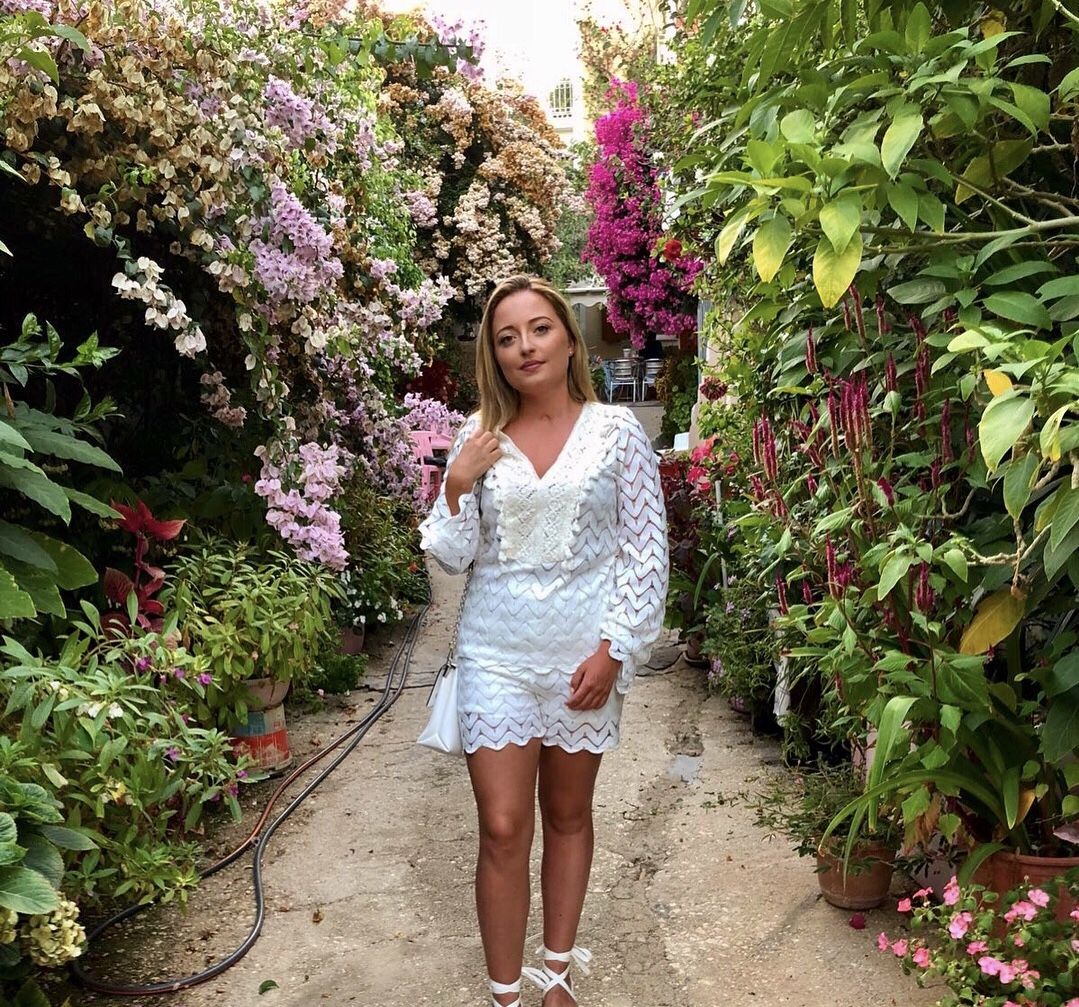
Finishing your first year of university only means one thing. Book a holiday with your best pals, get some work experience and make the most of your three-month well-earned summer break.
That was exactly the plan for 19-year-old Abbie Clark.
Her body however had a very different idea.
In 2016, Abbie was diagnosed with Guillain-Barré syndrome, a rare neurological disorder where the body’s immune system mistakenly attacks the nervous system.
The full recovery rate for a sufferer of Guillain-Barré syndrome is one in a million.
Abbie became that one.
"What I've learnt from being in rehab for so long and learning to walk and talk is that your brain blocks out the worst parts to protect yourself.
"I'm here trying to tell you a story to the best of my knowledge but my mum and dad have another story.
"This is my own version of events."
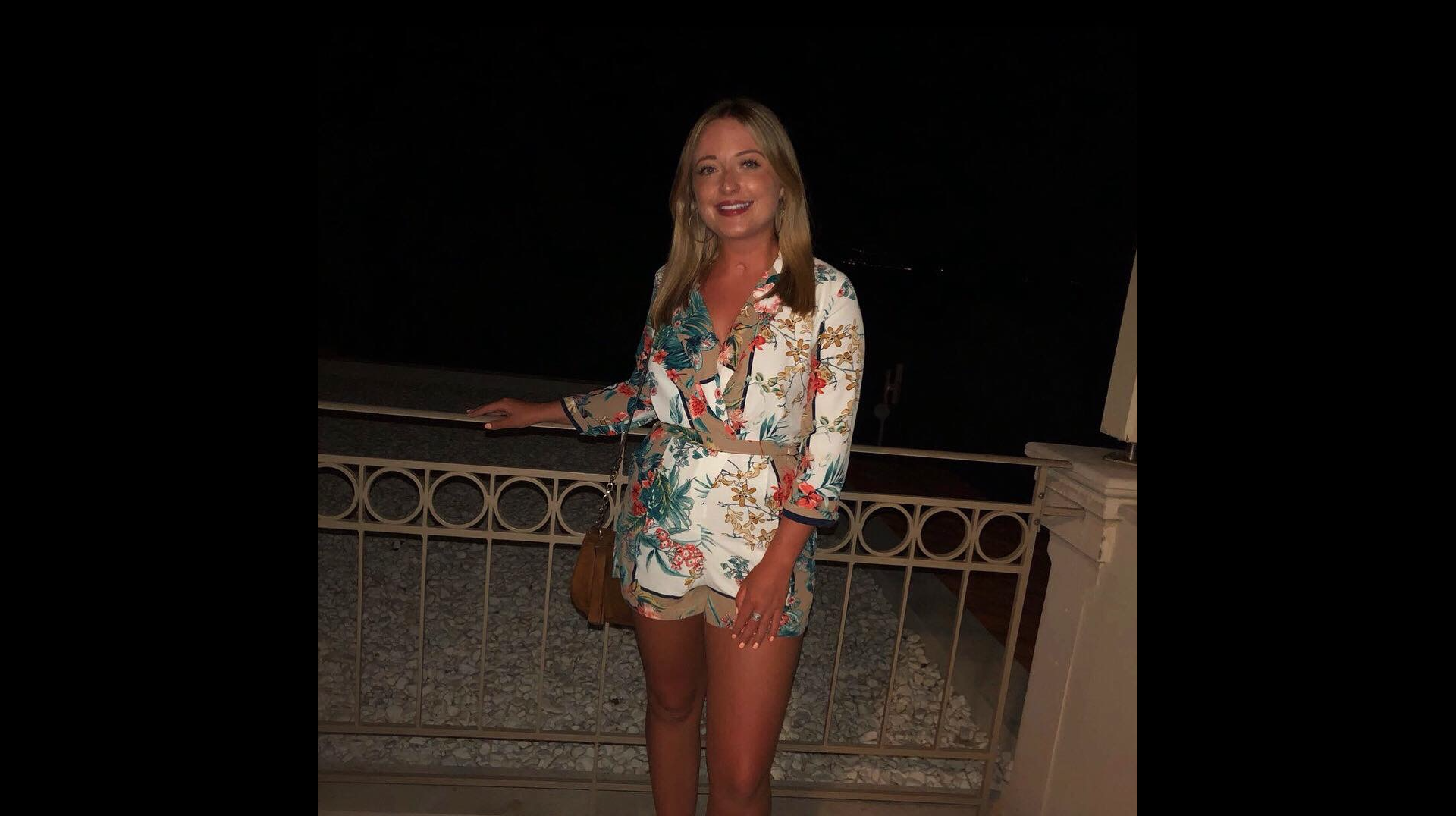
After finishing her first year of university exams, Abbie decided to get some work experience in the marketing industry. During the journey home on her first day on the job, she came down with a fever and a severe headache that persisted for the following two weeks. Thinking this was due to exhaustion from exam stress, Abbie ignored the symptoms until they worsened.
At the beginning of July Abbie went to a festival with best friends, Vicki and Tom. During her journey home she encountered a tingling sensation in her toes which developed into continuous pins and needles. With a holiday booked right around the corner and wanting to avoid worrying her parents, Abbie put on a brave face and tried to deal with the symptoms that were progressively getting worse.
As the days went on, Abbie started to feel so unwell that she decided it was time to go to the hospital. The severity of the headaches made it difficult for her to see some times and she felt extremely weak. The pins and needles sensation had started to travel all up her legs making it difficult to walk.
The hospital told Abbie they thought she had a throat infection and may have something wrong with her kidneys, but she was discharged after having blood tests.
When Abbie returned to the hospital with her parents days later, she became unable to communicate her symptoms properly to the doctor due to feeling so unwell.
"Straight away I could tell I was very weak and I wouldn't be able to communicate the problems to him as I wanted to."
Abbie remembers trying to explain her symptoms being even more difficult as she was seen by a 'really nervous' junior doctor who was unsure of what could be wrong . He then diagnosed her with lupus.
During this hospital visit Abbie lost the ability to walk.
"I just couldn't manage my legs . I just lost the ability to make them work so my dad had to carry me to the cab. It was really worrying because that's when I knew I was really unwell."
By the time Abbie was diagnosed, she had experienced every symptom of Guillain-Barré syndrome.
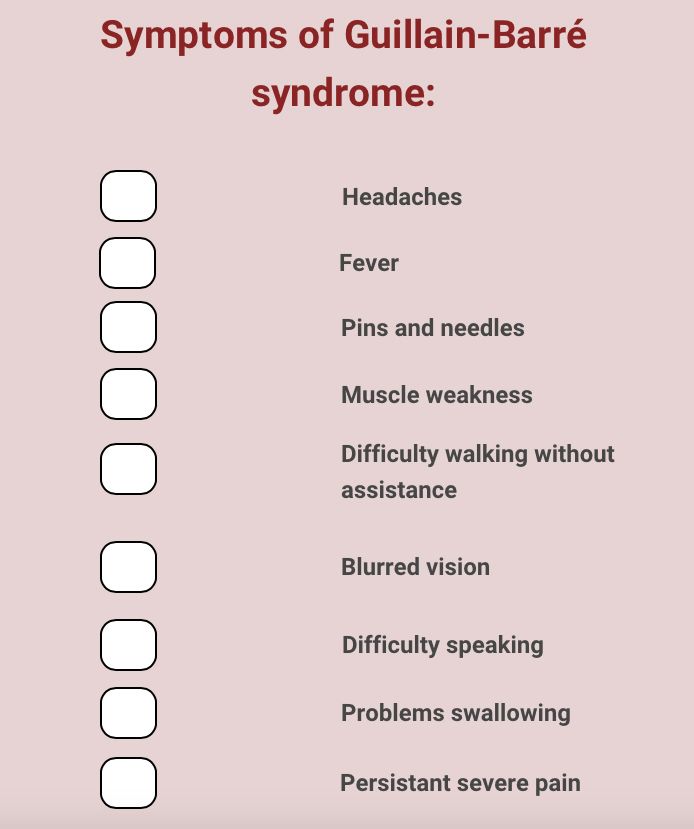
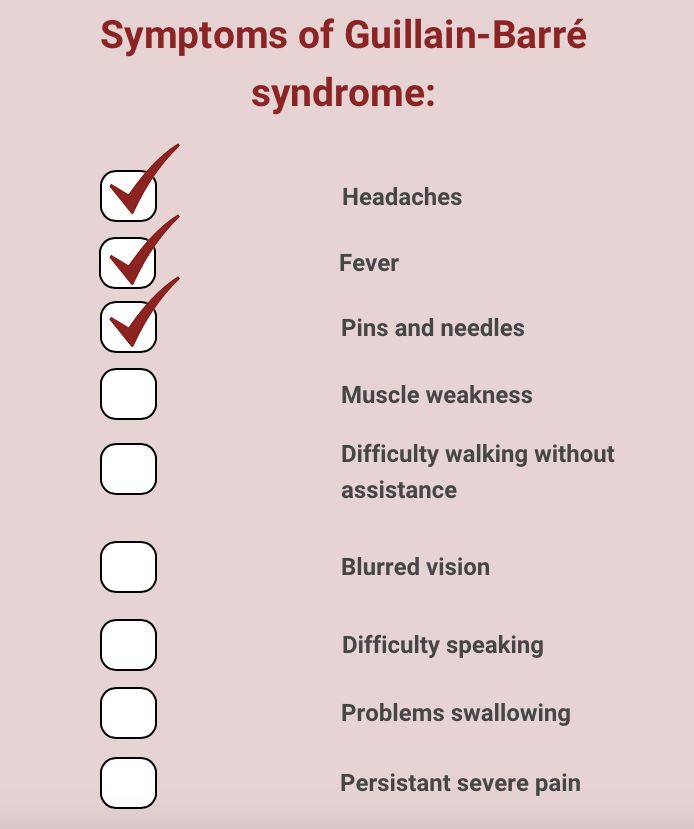
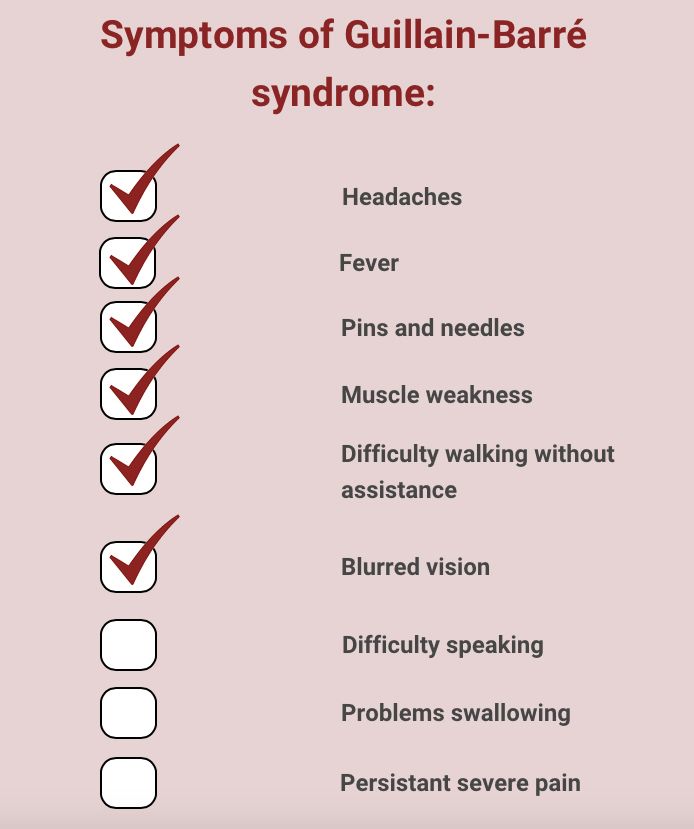
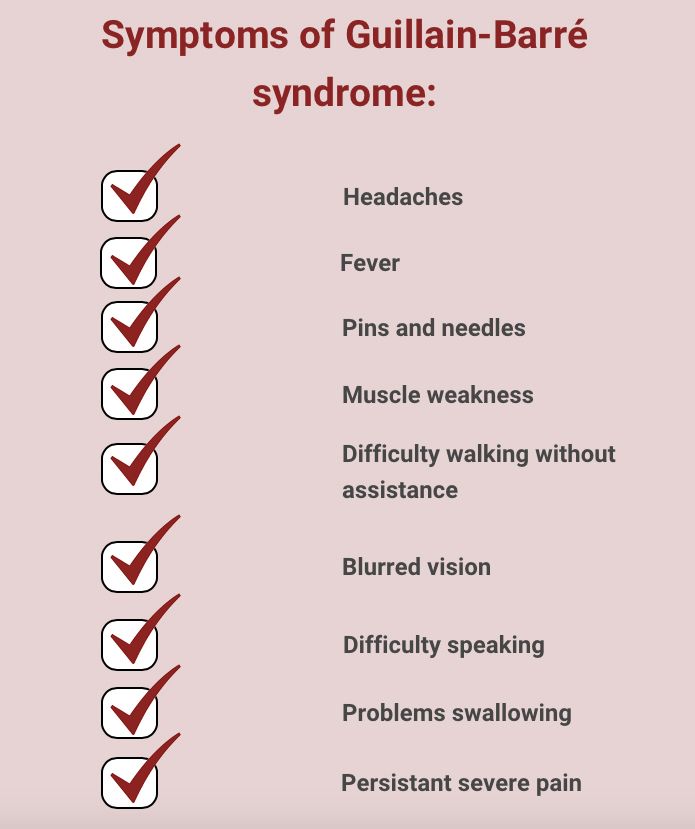
Returning from her second visit to the hospital, Abbie slept downstairs on the sofa with her parents so they could keep check on her through the night. While trying to go to the toilet in the middle of the night she collapsed and fainted.
Abbie's parents decided it was time to phone for an ambulance, however they felt let down once again by the NHS.
It took three hospital visits for Abbie to be finally diagnosed with Guillain-Barré syndrome.
Abbie was initially put into her own room but was told by staff in critical care that if she became more unwell she would be moved onto their ward.
A doctor came to see Abbie shortly after and extracted fluid from her spine to try and determine what could be wrong.
The results came back and confirmed that she did not have meningitis or lupus, and that she most likely had Guillain-Barré syndrome.
A consultant from critical care came to see Abbie and told her she was going to be moved onto their ward to have immediate treatment.
"When I arrived at critical care everything was being done for me and I felt out of control. It was like an out of body experience. I accepted the fact that I was ill but I didn't accept how bad it was."
A question you never imagine asking at 19

It became increasingly more diffiuclt for Abbie to breathe.
A nurse told her: "Abbie you need to tell one of us if you are struggling to breathe because then we need to put a breathing tube in - then we'll take it from there."
Abbie was put into an induced coma for two days.
Family from all over the country came to visit and say their prayers.
The night Abbie went into hospital she asked her mum to message best friends Vicki and Tom to still go on their planned holiday without her and to have the best time.
“I told my mum to type them ‘whatever you do go on holiday I don’t want you to miss it.’ They were in Ayai Napa thinking I wasn’t well just not on my phone because I didn’t want to be jealous of them having the best time.”
When Vicki’s parents found out just how poorly Abbie was they rang Vicki.
Her and Tom were on the first flight back to see Abbie.
“Vicki didn’t leave my side. Every day her and my family were there and I couldn’t have asked for better support really.”
Abbie’s closest friends regularly came to visit her - both when she was in critical care and during her two months in rehab.
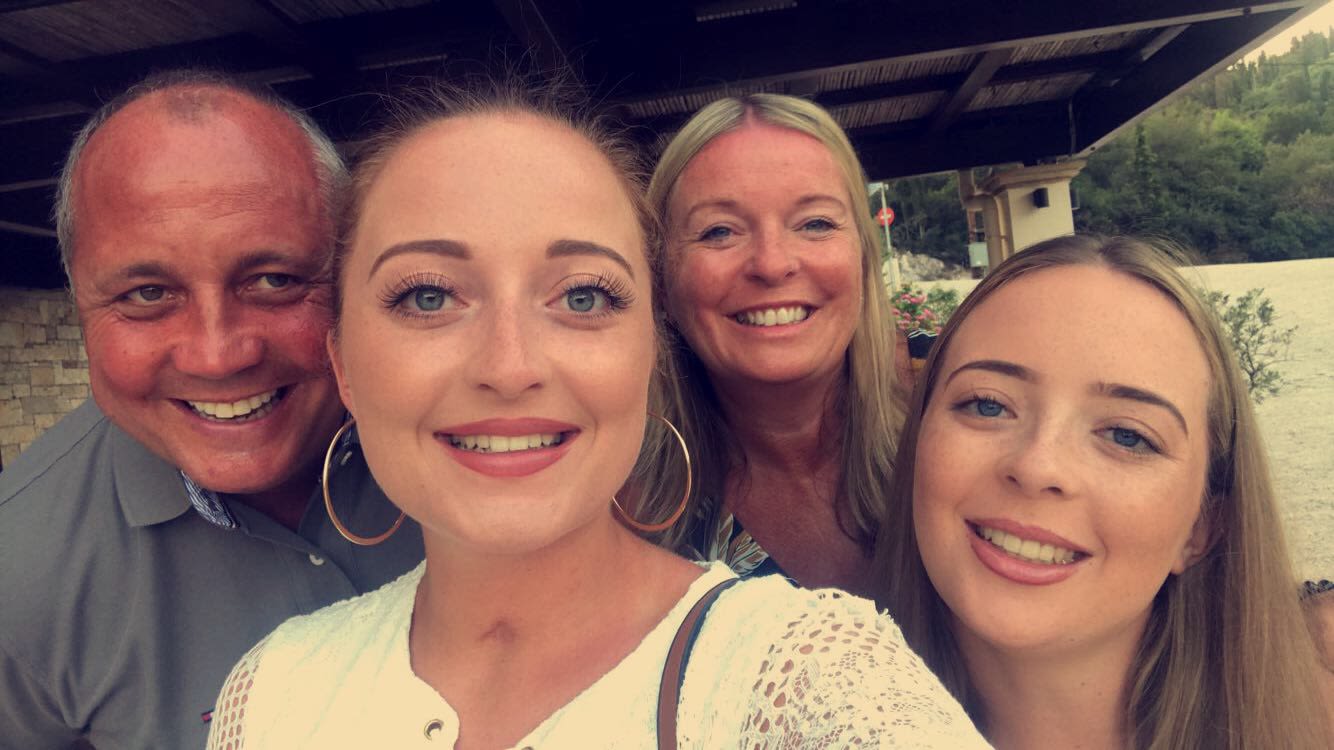
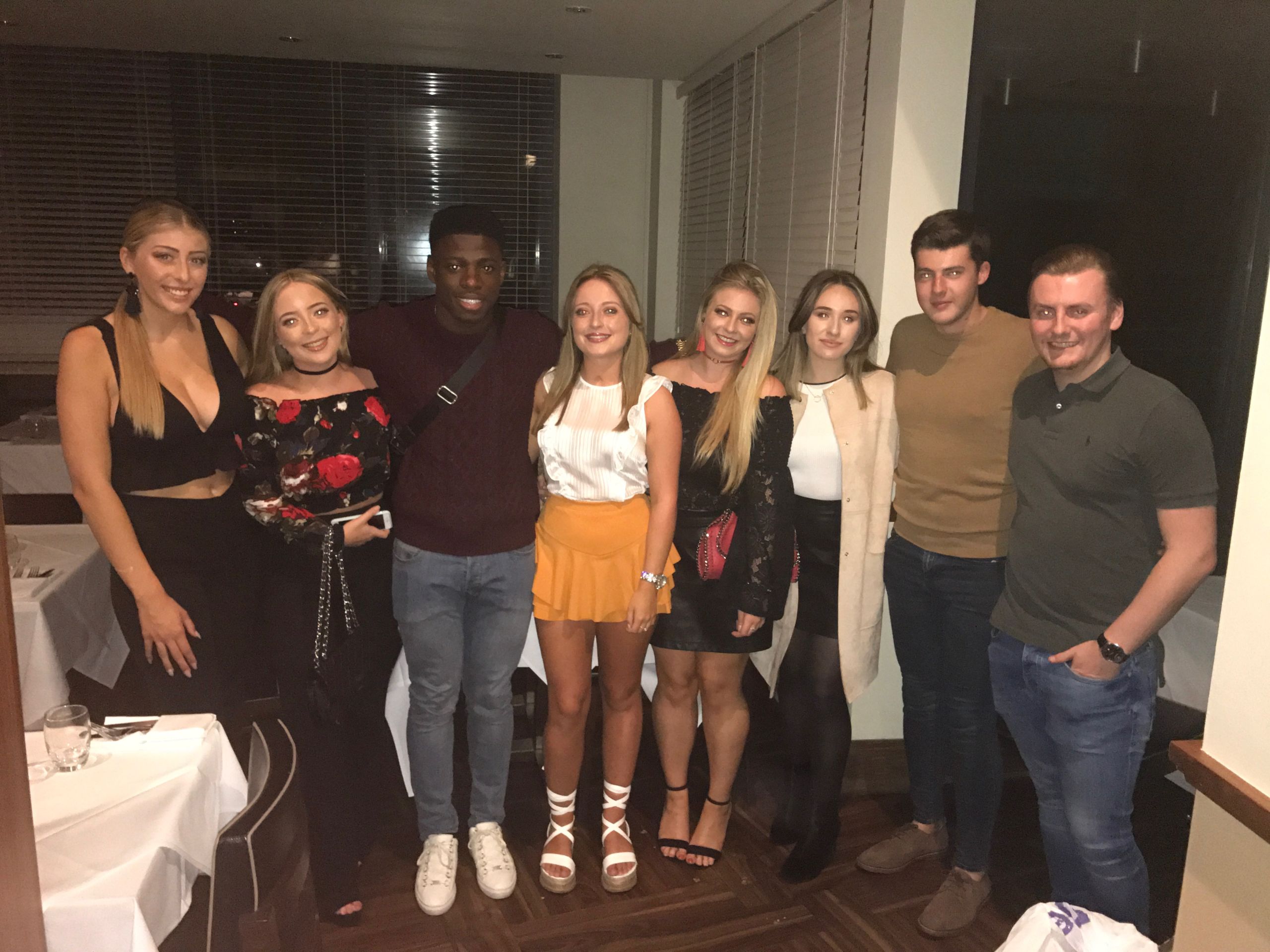
"The next memory I have really is just being frustrated in my body. I was locked in. It's called locked-in syndrome. This was because where I was put into my own room I developed this thing called ICU Delirium.
"I was having really vivid dreams that I was falling out of the bed, that the nurses weren't caring for me and that my parents didn't want to see me anymore. The worst dreams you can think of, I had.
"I just became really frustrated at myself and angry but I couldn't portray that.
"It was really hard to deal with the body. I didn't know if I was going to get better. I didn't know if I was going to walk again."
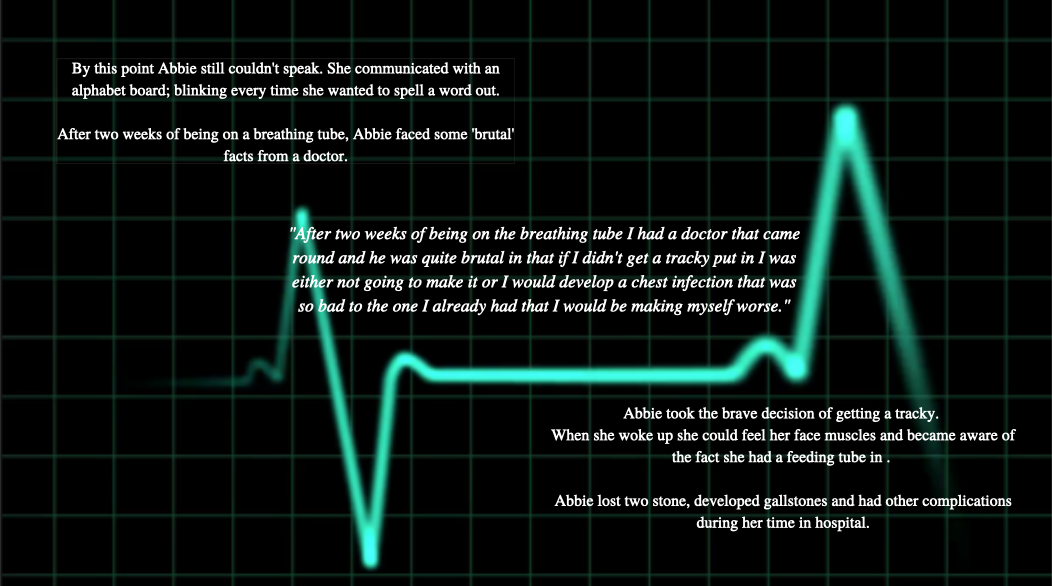
One of the biggest struggles Abbie faced was being left alone at night once all of her visitors had left.
She suffered with severe back spazms and was on so much medication to help the pain that it became impossible at times to sleep.
The first sign of progress occurred after taking a 'magic medicine' called IVIG (intravenous immunoglobulin). This gives your body the antibodies needed to fight infection when your body is not making it on its own.
"The first round of that didn't do much. It did pick me up a little bit apparently but I didn't notice the difference."
"The second round I had I started to feel a lot stronger. I started to move my thumb a tiny bit and luckily I had the opportunity to have a valve put in so I could speak."
"I just remember being surrounded by about six nurses and my mum and dad, and they went 'Abbie you've got to cough and say hello' and I sounded like a robot."
Abbie was moved out of her own room and onto a bay as she was still delirius.
She had to have her eyes taped shut when she went to sleep as her eyes couldn't close properly on their own.
One of the nurses, Sarah, went to buy a magazine to read to Abbie until she fell asleep to comfort her.
While Sarah went to get the magazine, Abbie was faced with an incredibly traumatic experience.
During Abbie's time in critical care she also experienced a severe blood infection.
The final straw was having a chunk of her hair cut out after it matted during the period of severe back spazms.
"All the things I had been through the worst part about it was someone cutting my hair."
After 40 days in critical care
Abbie was finally ready to start her journey to recovery.
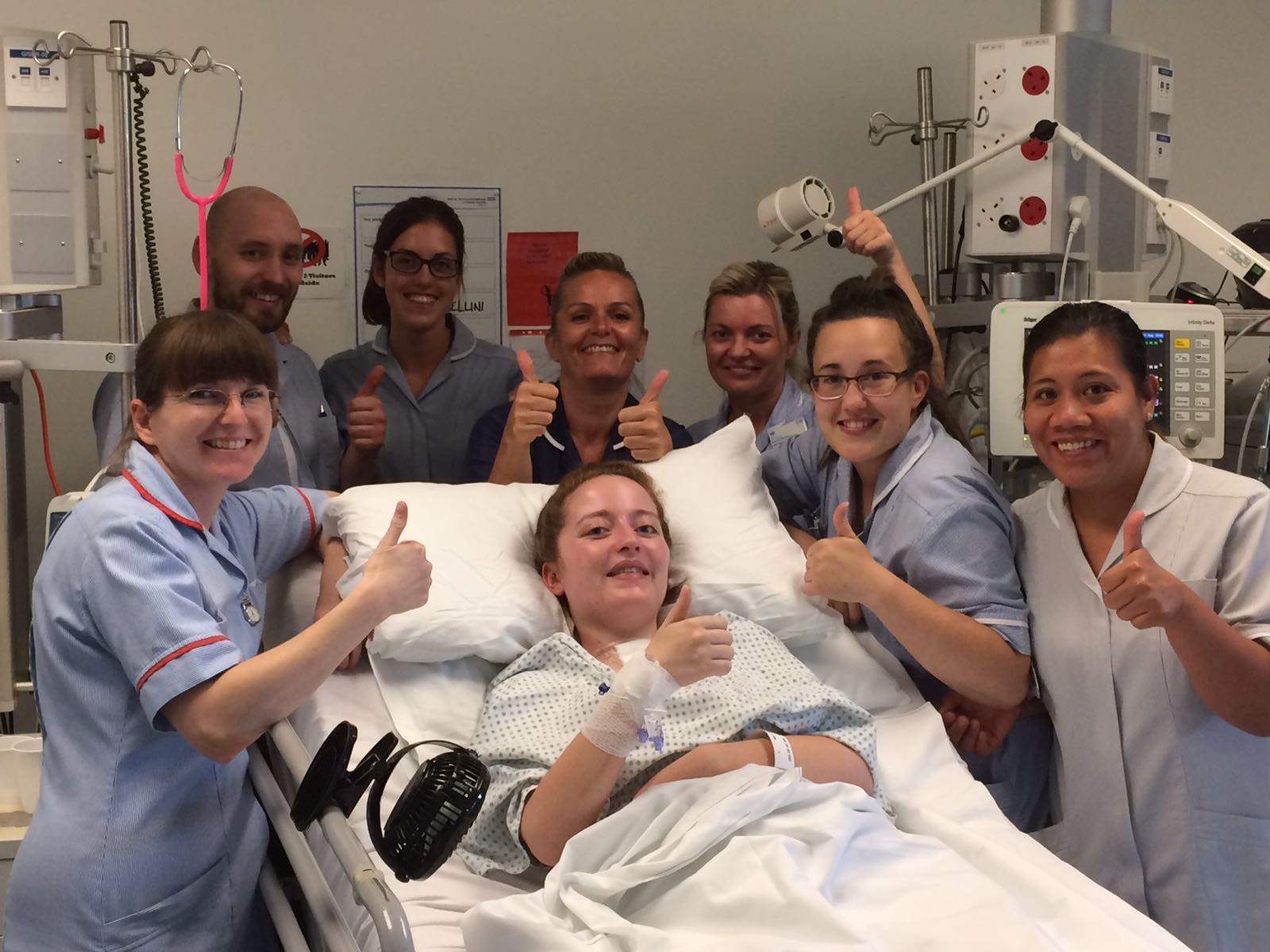
Moving out of critical care and onto a normal bay, Abbie was seen by a man in charge of rehabilitation at Homerton hospital in London.
She made a really good impression and was cherry picked and fast tracked to go to Homerton.
Abbie couldn't jump straight from critical care to rehab.
Her final hurdle was to spend five days in a normal bay so she could adjust to not having a nurse with her 24/7.
"After moving upstairs to the other bay I started to feel a lot better in myself. I started to feel like Abbie again."
Abbie's first time speaking with a nurse on an emotional level about how unwell she had been reduced her to tears.
"I was not used to talking to people about feelings. It was always can I have drugs? Can I see my mum and dad? Can I be turned? It was more directions than anything else."
Abbie gathered with her closest friends to celebrate her miraculous full recovery.
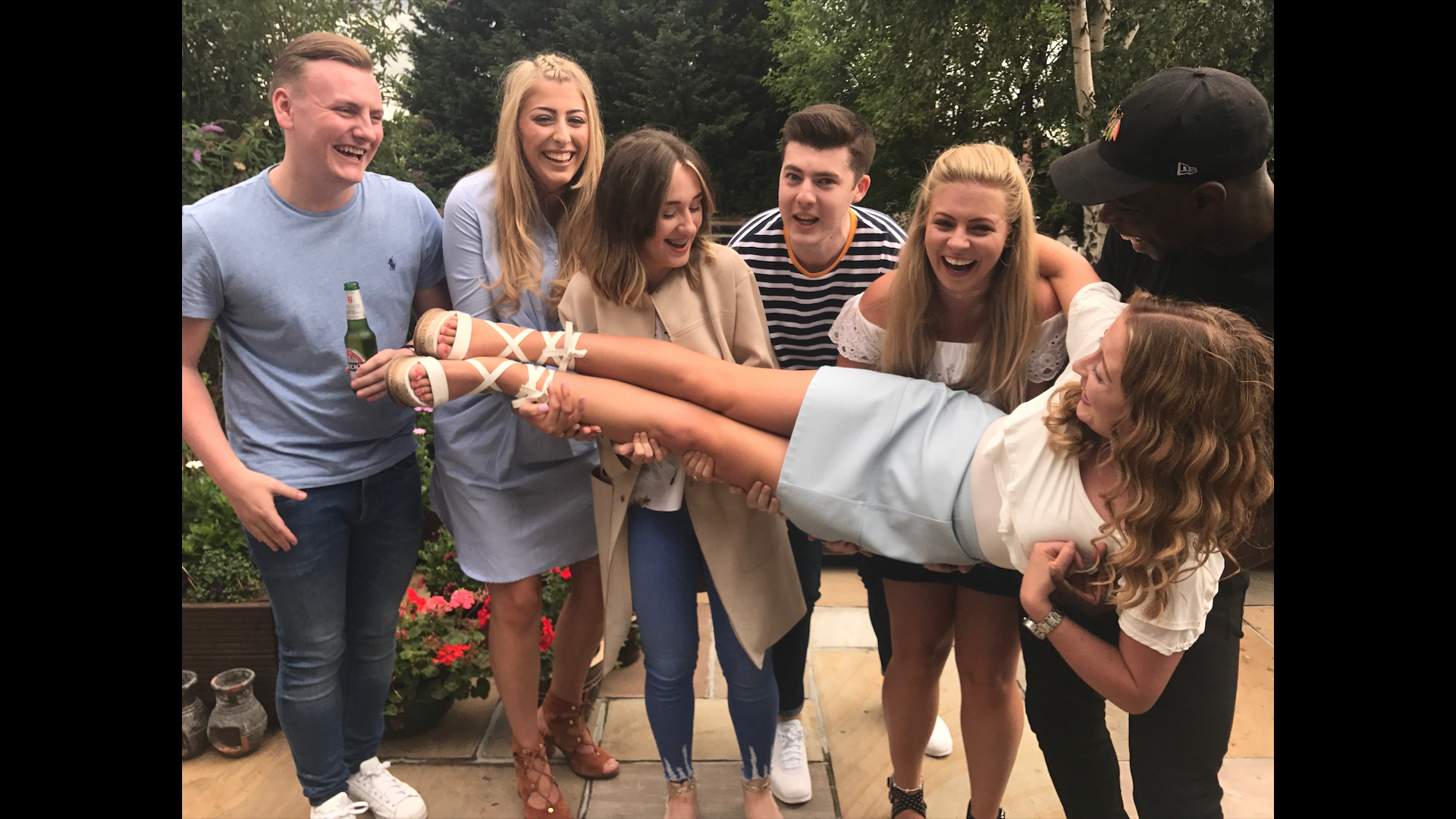
The milestones in Abbie's journey.
July - November 2016

A message from Abbie's sister, Lily.
"To my amazing sister,
Words will never be able to describe how proud I am of you.
You really are one of a kind.
The strength and determination you showed during the hardest of times just shows how amazing you really are.
I'll never forget how strong you were and despite everything you had thrown against you, you never gave up.
I'm also so proud that you didn't let any of this stop you from achieveing your dreams, by going back to university and smashing every exam since. You are an inspiration to me every day, and I'm sure to many other people.
You deserve every bit of happiness and success.
I love you forever and always.
Lils x"
